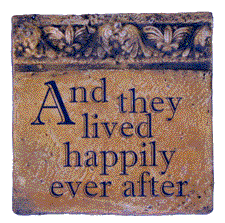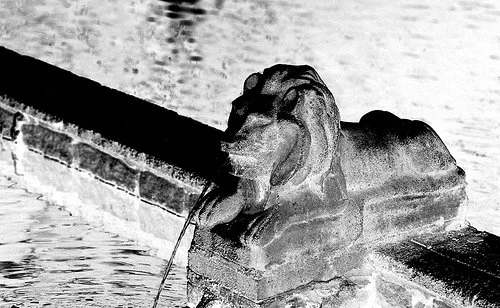1 Samuel 31 "The Portrait Hall": Happily Ever After?
The Portrait Hall: Happily Ever After?
Did you ever watch a movie and feel robbed at the end because of the unhappy and unsatisfying end to their story? We all want ever story to end well. Why would God give us the last moments of Saul’s life in detail, rather than just telling us he died? What is the purpose to sharing the unhappy ending? Saul, like all of us, made choices during his life that grossly affected the outcome of his life. His legacy reflects what he was, not what he wished he could be. It gives us a moment to pause, and consider what we are, and what we will be remembered as being.
Most of us can sympathize with comedian Woody Allen, who once said::
I’m not afraid to die. I just don’t want to be there when it happens. But you will be there. Ready or not, expected or unexpected, death comes. Try to ignore it, some things in life remind you that today could be the day you die: a close call, like these airplane passengers; the funeral of a friend; a celebrity obituary; maybe even a scene taken from the pages of the Bible. EVERYBODY WHO LIVES WILL DIE. Many of us seem to unconsciously believe dying is what happens to other people, not me, not now, not today. But when you read these verses, they remind us that all kinds of people die every day.
Take a moment and gave at Saul’s life. Here we see three statements that all of us will have to confront in our own lives:
Gross Realization of the “Sin sore” left open (1 Samuel 31:1-10)
He created defenselessness in the lives of those he was called to protect (31:1a)
He caused the retreat of God’s people and their positive influence on the people they were to reach. (31:1b).
His disobedience closed off avenues of testimony in his children who were not guilty, but were loyal to him (31:2).
First of all, let’s notice that bad people die. Saul is a good example. Saul was like most bad people- he didn’t start off as an evil person. In fact, he was probably a pretty good person. He was handsome, and eager, and seemed willing to serve his country and his Lord. But Saul let his crown go to his head. Instead of obeying God, he takes a wrong turn, and ends up doing all kinds of wicked things, from trying to murder David to turning to the occult instead of God for guidance. It doesn’t shock us when bad person like Saul dies.
What shocks us is when good like Jonathan die. Here is a prince of a man: loyal to God, a faithful soldier, loyal to his wicked father, but also loyal to his friend David. He is a man who trusted God, and who could be trusted by others. And yet he dies on the same day, in the same battle as his evil father Saul. It doesn’t seem fair that good people like Jonathan die because of bad people’s sin.
He “bled out” the jealousy he would not deal with in life, and slowly watched all that he loved wither away. The graphic consequences of his sin were evident to him, but he would not change his ways (31:3). What do think would have been the epitaph on the tombstone of King Saul?
His help evaporates and close companions fade away (31:4).
Despair sets in, as others around Saul see no reason to carry on (31:5-6).
His disobedience causes the loss of all his life fought for. He unraveled every accomplishment! (31:7).
Shame set in on God’s people (31:8-9).
The appearance of a victory for the enemy and his wicked system (31:10).
Saul was a leader! Our part in life is a passing opportunity that will never come our way again. What we do with the opportunities God gives us is up to us. We can make the most of them or we can squander them away.
Grand Recognition of Grace (1 Samuel 31:11-13)
People heard of the humiliation and recalled Saul’s life (31:11).
God tugged the hearts of some that remembered better days and stepped out to cut off the continued humiliation (31:12).
After a time for chastening, Saul’s humiliation was ended and the people could heal (31:13). “There appears to be a kind of poetic justice here, in that Saul is buried under “the tamarisk tree” (verse 13). It seems that Saul spent much of his time under a tree, some of which should have been spent doing battle with his enemies (see 14:2; 22:6).”
Godly Recognition of the Need to Act (2 Samuel 1:8)
The big lesson: “The sinful practice you don’t kill in your life will kill you and your testimony for your Lord!” (2 Samuel 1:8 cp. 1 Samuel 15:3). HOW YOU LIVE AFFECTS HOW YOU DIE!
According to an old fable, a man made an unusual agreement with Death. He told the Grim Reaper he would willingly accompany him when it came his time to die, but only on one condition—that Death would warn him well in advance before he came for him. Death agreed, and time went on: weeks turned into months, and months into years. One bitter winter evening, as the man sat worrying about all his possessions, Death suddenly enters the room and taps him on the shoulder. Startled, the man cries out, “You’re here so soon and without warning! I thought you agreed to warn me before you came.” Death replied, “I’ve more than kept my part. I’ve sent you many reminders of my coming. Every morning you saw the sun rise, and then every night you saw the sun set. Every time you said goodbye to someone at a funeral, I reminded you this day was coming. Every time you looked into the mirror, your own face reminded you that you were getting older, and closer to this day. You sat in church many Sundays, listening to the preacher tell you over and over that you would one day have to leave this world. I’m sorry you’re not ready, but today is the day when your time is up. You must come with me right now.”
And inasmuch as it is appointed for men to die once and after this comes judgment (Hebrews 9:27).
“The solution to your problem is not to die in sin; it is to die to sin. The only way you can do this is by faith in Christ — as you acknowledge your sin and guilt and trust in Him who has died in your place, who has suffered the eternal pain for your sins. It is in Christ that you die to sin, and enter into eternal life. If you have never done this, I urge you to do it now. As God’s promise of salvation is sure, so is His promise of judgment and eternal death. Let us learn from Saul’s death.“ (Robert Deffinbaugh)



